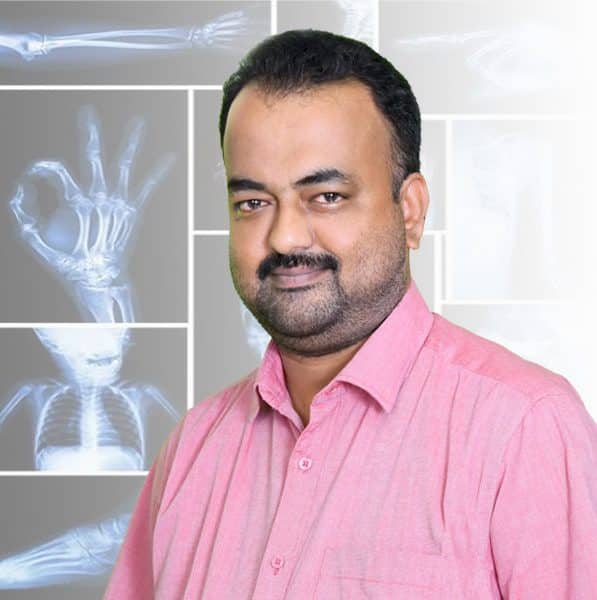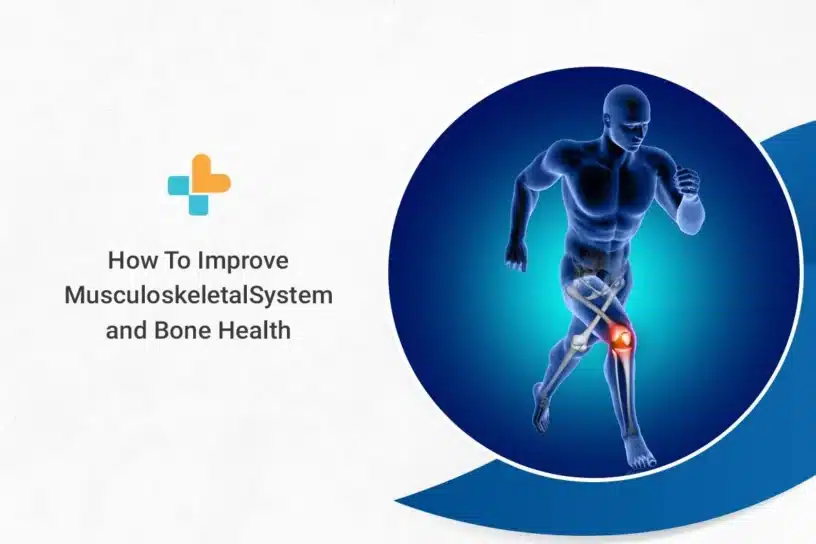Today’s sedentary lifestyle makes it easy for many people to overlook the importance of maintaining a healthy musculoskeletal system and strong bone health.
With the natural process of ageing affecting everyone, our bone health deteriorates, leading to a loss of bone strength and density and a variety of health issues. This can include osteoporosis (where bones become fragile and brittle) and fractures.
However, there are ways to slow down this process and maintain a healthy musculoskeletal system. By incorporating regular exercise, a balanced diet, and other healthy habits, we can improve our bone health and overall quality of life.
So, let’s dive into some tips for strengthening our bodies and maintaining healthy bones.
Ways to Improve Your Musculoskeletal System and Bone Health
Before we get into some effective strategies for keeping your bones strong and healthy, let’s understand what the musculoskeletal system is.
What Is the Musculoskeletal System?
The musculoskeletal system is the combination of the muscular and skeletal systems that work together to provide support, movement, and protection to the human body. It consists of joints, tendons, ligaments, muscles, and bones.
The skeletal system gives the body its shape and supports it, whereas the muscular system uses muscle contraction and relaxation to move the body.
These two systems work in conjunction to let the body move, stand upright, and engage in a variety of physical activities.
5 Effective Ways To Improve Your Musculoskeletal and Bone Health
Here are five highly-effective strategies you can incorporate into your day to improve your musculoskeletal and bone health.
1. Exercise Regularly

It’s well known that regular exercise can have a major impact on overall health and well-being. If you’re looking to strengthen your bones through exercise, engage in weight training and cardio exercises.
These exercises — such as walking, running, dancing, hiking, jogging, weightlifting, and stair climbing — require you to support your body weight with your feet and legs. By putting stress on the bones, these workouts signal the body to increase bone density and strength.
Resistance exercises, on the other hand, involve working against an opposing force, such as lifting weights or using resistance bands and can stimulate bone growth in the process.
We recommend doing daily cardio and lifting thrice a week.
2. Eat a Balanced Diet
Hippocrates couldn’t have said it better when he taught, “Let food be thy medicine and medicine be thy food”. A balanced diet is the foundation for your overall health.
Maintaining healthy bone health requires incorporating foods high in calcium and vitamin D. Calcium is essential for strong bones and can be found in dairy products, leafy green vegetables, and fortified foods such as cereal and orange juice.
In order for the body to absorb calcium better, it needs Vitamin D, which can be found in fatty fish, egg yolks, and sunlight exposure.
3. Avoid Smoking and Excessive Alcohol Consumption
Studies indicate excessive alcohol consumption in adolescence and the early years of adulthood can have a negative impact on bone health and raise the risk of osteoporosis in later life.
Additionally, smoking cigarettes can cause an imbalance in the way our body builds and breaks down bones. This can lead to lower bone strength and bone mineral density, which can increase the risk of developing osteoporosis and fractures.
To minimize the risk of these harmful effects on your bone health, quit smoking and limit your alcohol consumption to one drink per day for women and two drinks per day for men.
4. Get Enough Sleep

Contrary to popular belief, sleep is not a luxury; it’s a necessity for good health. Studies have shown that getting five or fewer hours of sleep per night can increase the risk of osteoporosis and low bone mineral density (a bone mineral density [BMD] test is a procedure that measures the amount of calcium and other minerals present in a specific area of your bone).
During sleep, our bodies undergo a range of biological processes, one of which is bone remodelling. This is the process where old bone tissue is eliminated, and new bone tissue is created, promoting overall bone health and strength.
5. Manage Stress
Chronic stress can have negative effects on bone health. Stress can cause an increase in the production of cortisol, a hormone that can interfere with bone growth and remodelling.
The harmful effects of stress even include unhealthy habits such as overeating, smoking, or excessive alcohol consumption, which can all negatively impact bone health.
Stress management activities like meditation, yoga, or deep breathing can help reduce stress and increase bone health. You can even try regular exercise, spending time outdoors in nature, practising mindfulness or gratitude, and connecting with loved ones.
Take Charge of Your Musculoskeletal System and Bone Health With Ayu Health Hospital
Taking care of your musculoskeletal system and bone health may significantly improve your overall health and mobility. It’s never too late to start taking care of your bones, and making small lifestyle changes can have a big impact.
At Ayu Health Hospital, we offer a range of services to support musculoskeletal and bone health, including diagnostic testing, physical therapy, and nutrition counselling.
Contact us today to learn more and schedule a consultation with one of our healthcare professionals. Remember, prevention is key to maintaining a healthy and active lifestyle.
Read more: Understanding Bone Tuberculosis: Diagnosis, and Treatment Options
Our Hospital Locations
Orthopaedics Surgery Hospitals in Chandigarh | Orthopaedics Surgery Hospitals in Bangalore | Orthopaedics Surgery Hospitals in Jaipur | Orthopaedics Surgery Hospitals in NCR | Orthopaedics Surgery Hospitals in Hyderabad
Our Doctors
Orthopaedics Surgery Doctors in Chandigarh | Orthopaedics Surgery Doctors in Bangalore | Orthopaedics Surgery Doctors in Jaipur | Orthopaedics Surgery Doctors in NCR | Orthopaedics Surgery Doctors in Hyderabad
About the Author

Dr. Manjunath Kumar K.
Dr. Manjunath Kumar K. is a renowned Orthopaedics currently practicing at Ayu Health, Bangalore.
He is an orthopedic surgeon currently practicing at Mallige Medical Center, Bangalore. A highly qualified doctor, he has completed his MBBS from Bangalore Medical College and MS in Orthopedics from KIMS, Hubli. further higher surgical training was from England, Birmingham. His post-graduate degree from the royal college of Edinburgh and the Royal College of Ireland. He also has vast experience in treating Unilateral Total Knee Replacement, Bilateral Total, Knee Replacement, Total Hip Replacement Surgery, and ACL Tear




